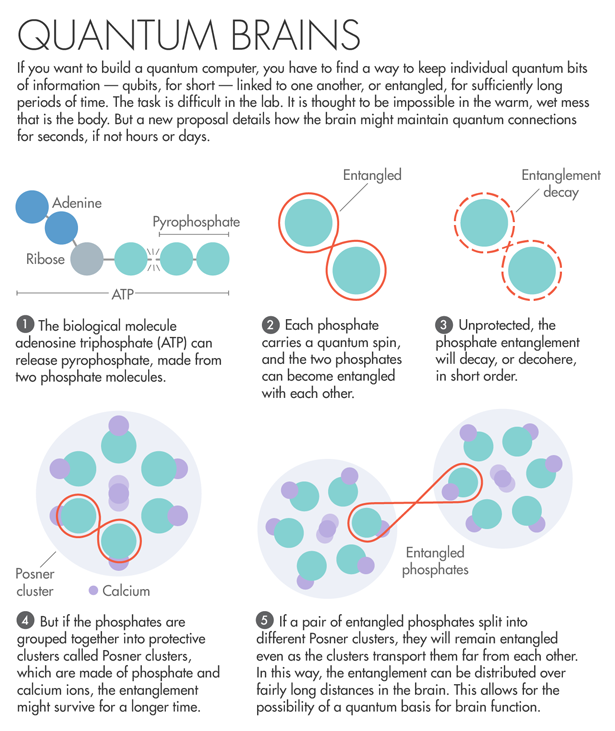The mere mention of “quantum consciousness” makes most
physicists cringe, as the phrase seems to evoke the vague, insipid musings of a
New Age guru. But if a new hypothesis proves to be correct, quantum effects
might indeed play some role in human cognition. Matthew Fisher, a
physicist at the University of California, Santa Barbara, raised eyebrows late
last year when he published a paper in Annals of Physics proposing
that the nuclear spins of phosphorus atoms could serve as rudimentary “qubits”
in the brain—which would essentially enable the brain to function like a
quantum computer.

No comments:
Post a Comment